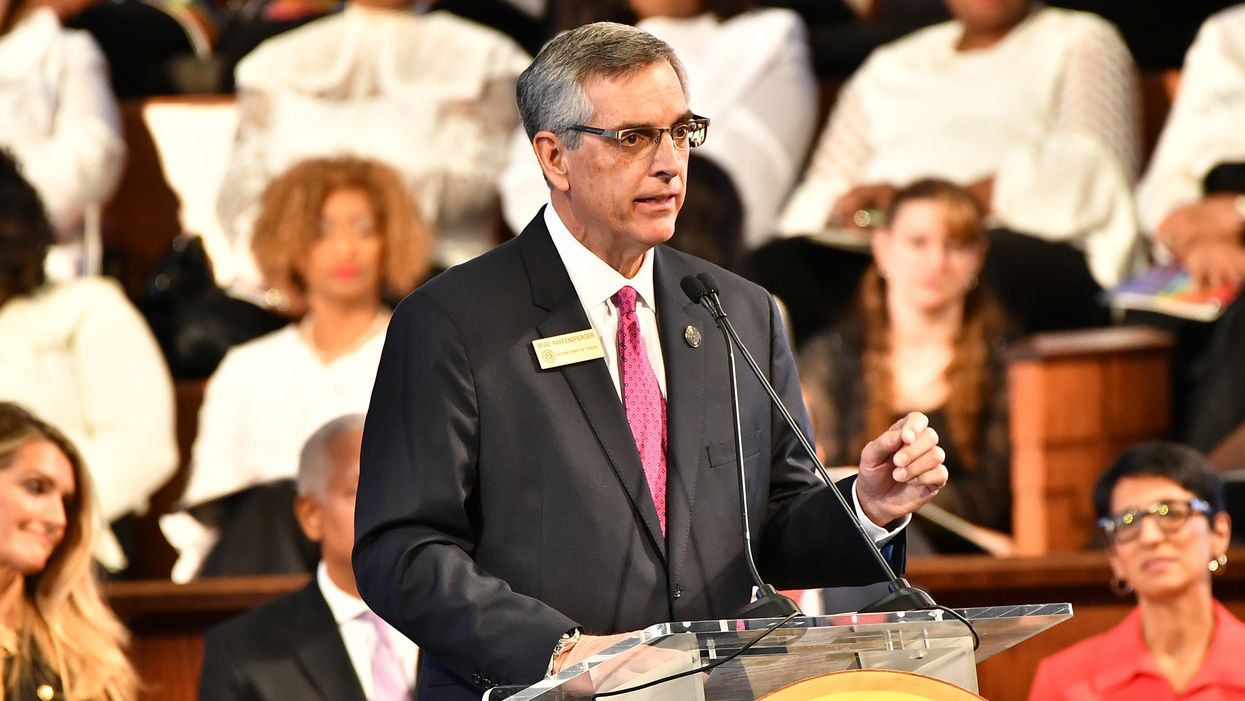One week after President Trump urged voters to test the integrity of the election system by trying to cast two ballots this fall, by mail and in person, Georgia has started probing whether 1,000 people committed felonies this summer by succeeding in doing precisely that.
The announcement Tuesday, by Republican Secretary of State Brad Raffensperger, launches by far the biggest investigation this year into potential voting fraud, which Trump baselessly maintains is rampant and threatens to invalidate the result of a presidential contest reliant on absentee ballots as never before.
Raffensperger said he has found almost no evidence of people out to scam the system, however. And he conceded that, during one of the year's most chaotic primaries, many may have been so skeptical about the fate of their ballot envelope that they headed to a polling place as a failsafe.
"Every double voter will be investigated thoroughly," Raffensperger said at a news conference, noting that proof of nefarious "intentionality" isn't required by state law to convict and imprison someone for as long as a decade for voting twice. "At the end of the day, the voter was responsible and the voters know what they were doing."
He said evidence of double voting, in the June primary and August runoffs, had been uncovered in 100 of the state's 159 counties but the discovery had not changed the outcome of any contests — which would undercut part of Trump's unfounded allegations about how easy it is to steal an election when mailable ballots are in wide circulation.
Last week, at a campaign stop in neighboring and similarly competitive North Carolina, Trump encouraged supporters to return an absentee ballot and then try to vote in person as a way to "test the system."
After aides suggested he was being hyperbolic, he issued more exhortations about double-voting — which in some states is itself an election fraud crime. At a minimum, it added yet another dimension to Trump's long campaign to sow doubt about the coming November result, an unprecedented upending of democracy's norms from an incumbent president. There is minimal evidence of any sort of fraud in recent American elections, using the mail or otherwise
Polling shows a tossup contest for Georgia's 16 electoral votes, which Trump took last time to extend the Republican nominees' winning streak in the state to six elections. Both of Georgia's GOP-held Senate seats are being contested this year.
The progressive Common Cause Georgia accused the state's top election official of meritless amplification of election integrity worries. "People who intentionally vote twice should be subject to the usual criminal penalties," it said. "But we are concerned that voters who were simply trying to vote may get caught up in the dragnet."
Raffensperger said he knew of just one voter "bragging" of voting twice.
Like many states, Georgia has a system to prevent such behavior: Receipt of each absentee ballot is recorded on computer servers, which local election workers can check before giving out ballots at polling places. Despite this safeguard, Raffensperger said, "the human element" allowed 1,000 people to vote both ways in a primary plagued by a shortage of poll workers, long lines and problems with a new generation of voting machines being used statewide for the first time.
Almost 150,000 people who requested absentee ballots showed up at polling places on election day, officials say, most of whom said it was because they never received their forms in the mail.
Voters were urged to vote absentee in the primaries to avoid Covid-19, and more than 1.1 million did so — shattering previous records. (Nearly half of all primary votes were cast remotely, up from 5 percent in most recent elections.) The record seems destined to be broken again in the general election; almost 1 million of the state's 7.4 million voters have already requested an absentee ballot.
Raffensperger and the State Election Board have made some changes to make the fall election smoother than the summer's primary, including a new online system for requesting a no-excuse absentee ballot, the addition of secure drop boxes for those ballots and an earlier start to the processing of absentee ballots.




















Trump & Hegseth gave Mark Kelly a huge 2028 gift